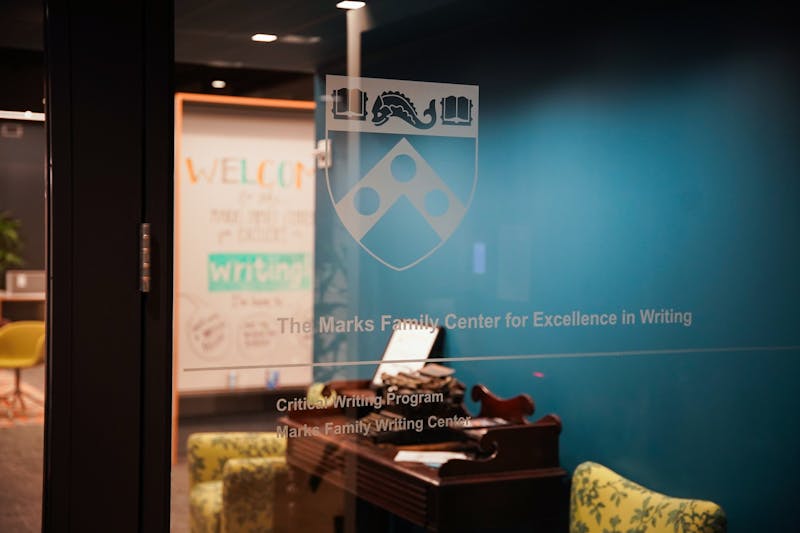This month marked the bicentennial of Charles Darwin's birth, and he has been getting considerable attention. My subject here is not his work on evolution. No, as director of Career Services, I am interested in the beginnings of his career. How does one become a Charles Darwin?
A doctor's son, Darwin was sent to the University of Edinburgh, where he studied medicine, but it did not sufficiently interest him. (He hated the sight of blood.) What did interest him was natural history. He joined a science club, attended chemistry lectures and learned to classify plants. Realizing that medicine was not the best career for his son, Darwin's father sent Charles to Cambridge, where he pursued a BA with the goal of becoming an Anglican minister, then a traditional career path. At Cambridge Darwin studied botany.
Darwin planned a short post-graduation trip to the tropics with a classmate to study natural history. But fate intervened. The classmate died. Shortly thereafter, though, his Cambridge mentor, professor John Henslow, recommended Darwin as a suitable young man with scientific interests to accompany Capt. Robert FitzRoy, who was embarking on a two-year voyage to chart the coastline of South America. He was looking for a young man to dine with him each night, one who shared his interest in science, who could take advantage of the stops on the voyage to pursue scientific inquiry and finally, who could pay his own way. Darwin persuaded his father to pay his expenses. The rest, as they say, is history.
Why do I tell this story? Because I think Darwin's experience provides a useful example to today's soon-to-be graduates . Perhaps you started college as pre-med, encouraged by parents to do so. You may have moved on from medicine to consider another career field, about which you were not particularly enthusiastic, but it provided an achievable and respectable goal, with reasonable job prospects. Perhaps you too have a genuine interest in some course of study, club, volunteer activity or part-time job. You may even be planning a post-graduation trip to the tropics!
Maybe you too will be offered the chance to pursue your passion, even though you are really a novice, an amateur. Does that sound far-fetched? Darwin became a naturalist over the course of the Beagle's voyage, which stretched to almost five years. He wasn't paid for his time. He wasn't the first person who was asked accompany FitzRoy. But he had a mentor who recommended him, he took advantage of the opportunity, and over the course of his travels he evolved (sorry, I couldn't resist) into an experienced naturalist. During the voyage he wrote back frequently to his mentor Henslow, who published some of his letters in pamphlet form. People became aware of his work. Before he was 30 years old, Charles Darwin had become one of the best-known naturalists in England. (The Origin of Species would not be published for some years.)
My message here is not about turning away from medical or ministerial pursuits. Farfrom it. No, it is to highlight the way Darwin took advantage of something Professor John Krumboltz of Stanford calls "planned happenstance." In Luck Is No Accident: Making the Most of Happenstance in Your Life and Career, Krumboltz and co-author Al Levin describe the importance of serendipity in one's career. It is important, they say, to respond positively and take action when unexpected events occur. Darwin grabbed at an opportunity others turned down. He followed the recommendation of a trusted faculty mentor. He did not plan to become a professional naturalist. The most he could hope for was a clerical career in a rural parish where he could pursue his interest in the natural world. No, Darwin put himself in position to go on the Beagle by following his curiosity, by making connections with faculty and likeminded individuals, even by planning a short trip to explore tropical plant and animal life. And because he followed his passion, Darwin's life was forever changed, and he became one of the most influential scientists and thinkers of modern times.
Planned happenstance is even more important today. The world is changing. The road maps you were planning to follow may no longer point in a realistic direction. But change always presents opportunities. So be like Darwin. Be open to the opportunities life presents to you. Who knows where they will lead you? And what better time than now, during this economic downturn, to make a U-turn, to take a risk, to follow a dream?
Patricia Rose is Penn's Director of Career Services. Her office is located in the McNeil Building and is open Monday-Friday from 9:00 to 5:00.
The Daily Pennsylvanian is an independent, student-run newspaper. Please consider making a donation to support the coverage that shapes the University. Your generosity ensures a future of strong journalism at Penn.
DonatePlease note All comments are eligible for publication in The Daily Pennsylvanian.








